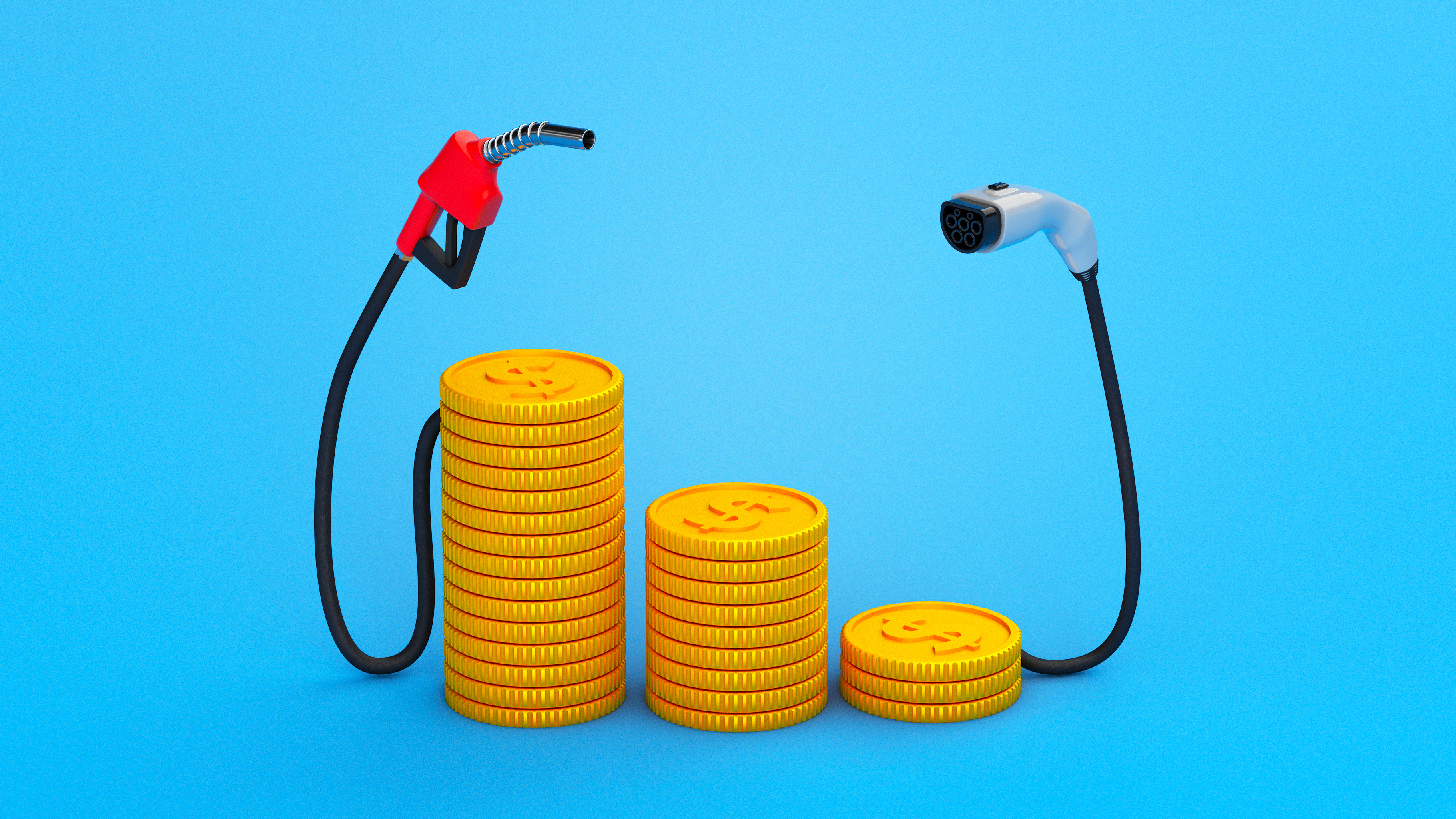How to prepare for the return of student loan payments
After years of pause, payments are expected to resume this summer


A free daily email with the biggest news stories of the day – and the best features from TheWeek.com
You are now subscribed
Your newsletter sign-up was successful
For years now, federal student loan payments have been on pause. That hiatus is about to come to an end. The payment pause began in March 2020, as part of the relief offered during the Covid-19 pandemic, and was repeatedly extended, allowing borrowers to keep money in their pockets instead of putting it toward student loan payments.
The agreement negotiated between President Biden and House Speaker Kevin McCarthy to raise the debt ceiling stipulates that student loan payments would resume around Sept. 1, The New York Times reported. Even without that provision in the debt ceiling deal, the payment pause was bound to come to an end sooner or later, as Biden had already announced he did not plan to extend it.
Borrowers likely will still have until the end of the summer to get their finances prepared for this new financial reality. Still, many people have gone three years without factoring student loan payments into their budgets, and the change could be jarring.
The Week
Escape your echo chamber. Get the facts behind the news, plus analysis from multiple perspectives.

Sign up for The Week's Free Newsletters
From our morning news briefing to a weekly Good News Newsletter, get the best of The Week delivered directly to your inbox.
From our morning news briefing to a weekly Good News Newsletter, get the best of The Week delivered directly to your inbox.
Update your information
It's been long enough that you may have forgotten some essential details about your student loans. Not to mention, a number of loan servicers stopped working with the Department of Education during the payment pause, so your loan servicer may have changed. "About a third of borrowers will be making payments through a different company than they were before the pandemic pause," Money estimated.
So as the first order of business, figure out who your loan servicer is. If your loan servicer changed, you should have received notices you can check. Or go to StudentAid.gov, navigate to your account dashboard, and select "My Loan Servicers." Another option is to call the Federal Student Aid Information Center at 1-800-433-3243.
It's also smart to log into your account to make sure your contact information is up to date. This includes your email address, mailing address, and phone number.
While you're there, see if there's an upcoming due date listed for your next payment. Consider setting up autopay to make sure you pay on time, or creating a reminder for yourself. "If you were on an automatic payment plan before the pandemic — that is, before March 13, 2020 — you must opt back in," The New York Times warned. "Your servicer should reach out to you about this. If you don't respond, your payments will not automatically restart."
A free daily email with the biggest news stories of the day – and the best features from TheWeek.com
Reconfigure your monthly budget
Adding student loan payments to your existing expenses might require some extra work and planning. Take some time "to find a budget method that works for you, such as tracking your spending for a month, assigning each expense to a broad category," The Wall Street Journal recommended. Doing this can help you identify areas where you can cut back — perhaps even enough to cover some or all of your student loan payments.
After reviewing the numbers, if you realize you already have room in your budget, consider resuming payments sooner than later. This way, you can "take advantage of 0% interest while it lasts," said Money.
Choose a repayment option
Once you've gotten familiar with the numbers — both how much you're already earning and spending each month, as well as how much your monthly student loan payments will be — you can start to look at repayment plan options. Maybe you're making more money than you did before the pandemic, or perhaps you took a hard hit financially during those years. In either case, there's likely a repayment option that will suit your specific financial situation.
There are a lot of payment options to sort through. For example, income-driven repayment plans "base payments on your income and family size and may yield monthly payments as low as $0," and will result in your remaining balance being forgiven after a certain number of payments, The New York Times explained. Meanwhile, the standard repayment plan is designed to help you pay off your debt in 10 years, which will mean less interest accruing. Biden is also expected to come out with a new REPAYE plan, which is "expected to provide the lowest payment for most borrowers," the Times reported.
To help figure out how different plans would affect your monthly and overall payments, consider using the loan simulator offered on StudentAid.gov.
Make a contingency plan
If you have a feeling you're not going to be able to afford to make payments when they resume, it's better to address that now rather than look the other way.
The first step to take is putting in a request for either economic hardship or unemployment deferment, depending on your situation. These "are the ideal ways to postpone your federal student loan payments because interest usually doesn't accrue under them, as long as they're subsidized undergraduate student loans," per CNBC.
And if you don't qualify, you can also turn to forbearance to continue your payment pause. However, "interest will rack up and your balance will be larger — sometimes much larger — when you resume paying," CNBC warned.
Keep tabs on the news
While the payment pause is soon to reach its end, that doesn't necessarily mean that all assistance is totally off the table just yet. If the Supreme Court allows the Biden administration to move ahead with its debt cancellation plan, "millions of borrowers could see up to $20,000 of their balance disappear," The New York Times reported. Further, Pell Grant borrowers and certain other borrowers could get an additional $10,000 off their loan balance. A decision is anticipated by the end of June, so make sure to keep your eyes peeled.
Becca Stanek has worked as an editor and writer in the personal finance space since 2017. She has previously served as the managing editor for investing and savings content at LendingTree, an editor at SmartAsset and a staff writer for The Week.
Becca Stanek has worked as an editor and writer in the personal finance space since 2017. She previously served as a deputy editor and later a managing editor overseeing investing and savings content at LendingTree and as an editor at the financial startup SmartAsset, where she focused on retirement- and financial-adviser-related content. Before that, Becca was a staff writer at The Week, primarily contributing to Speed Reads.
-
 The ‘ravenous’ demand for Cornish minerals
The ‘ravenous’ demand for Cornish mineralsUnder the Radar Growing need for critical minerals to power tech has intensified ‘appetite’ for lithium, which could be a ‘huge boon’ for local economy
-
 Why are election experts taking Trump’s midterm threats seriously?
Why are election experts taking Trump’s midterm threats seriously?IN THE SPOTLIGHT As the president muses about polling place deployments and a centralized electoral system aimed at one-party control, lawmakers are taking this administration at its word
-
 ‘Restaurateurs have become millionaires’
‘Restaurateurs have become millionaires’Instant Opinion Opinion, comment and editorials of the day
-
 How your household budget could look in 2026
How your household budget could look in 2026The Explainer The government is trying to balance the nation’s books but energy bills and the cost of food could impact your finances
-
 What is a bubble? Understanding the financial term.
What is a bubble? Understanding the financial term.the explainer An AI bubble burst could be looming
-
 The FIRE movement catches on as people want to retire early
The FIRE movement catches on as people want to retire earlyIn the spotlight Many are taking steps to leave the workforce sooner than usual
-
 Who wants to be a millionaire? The dark side of lottery wins
Who wants to be a millionaire? The dark side of lottery winsIn The Spotlight Is hitting the jackpot a dream come true or actually a nightmare?
-
 How can you find a financial adviser you trust?
How can you find a financial adviser you trust?the explainer Four ways to detect professionals who will act in your best interest
-
 What should you consider when choosing a financial adviser?
What should you consider when choosing a financial adviser?The Explainer The right person can be a big help with financial planning, investing, taxes and more
-
 What Biden's IRA means for EV tax credits: 2024 updates
What Biden's IRA means for EV tax credits: 2024 updatesThe Explainer Which cars are eligible and how much money can owners save?
-
 How to ensure you don't outlive your retirement savings
How to ensure you don't outlive your retirement savingsThe Explainer Your golden years should be enjoyed. Don't let finances get in the way.
